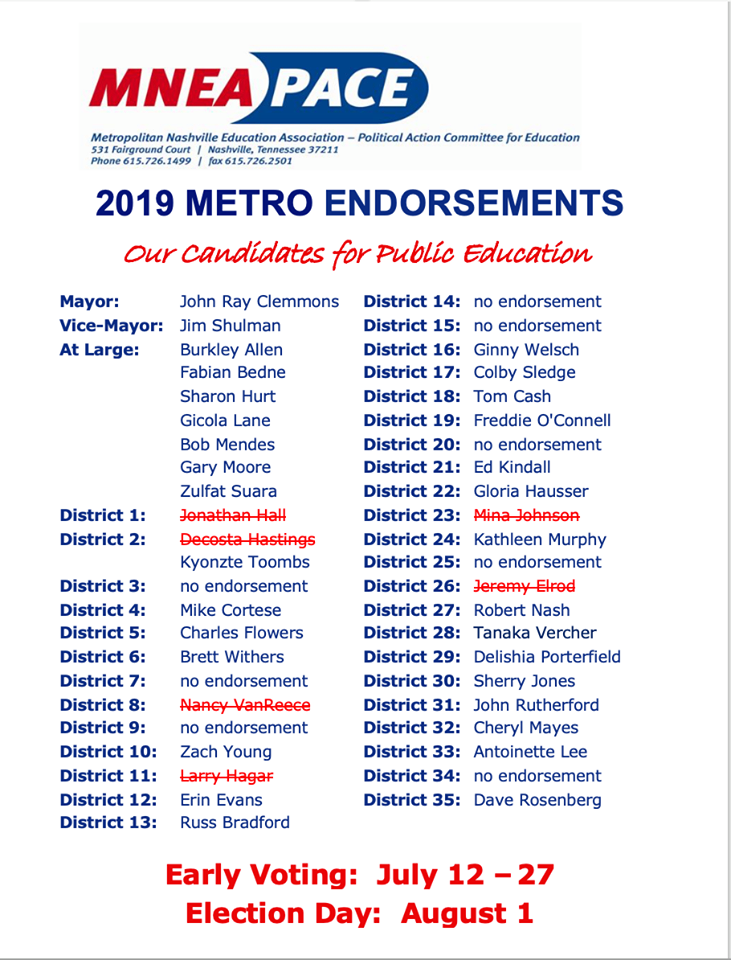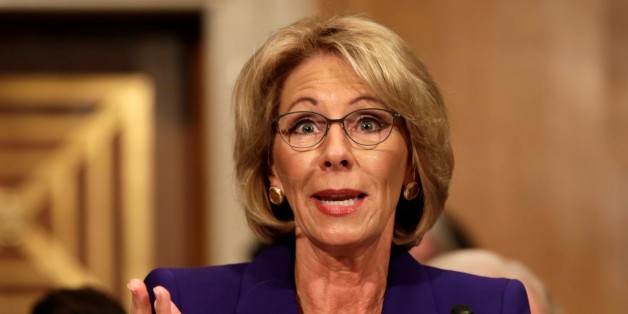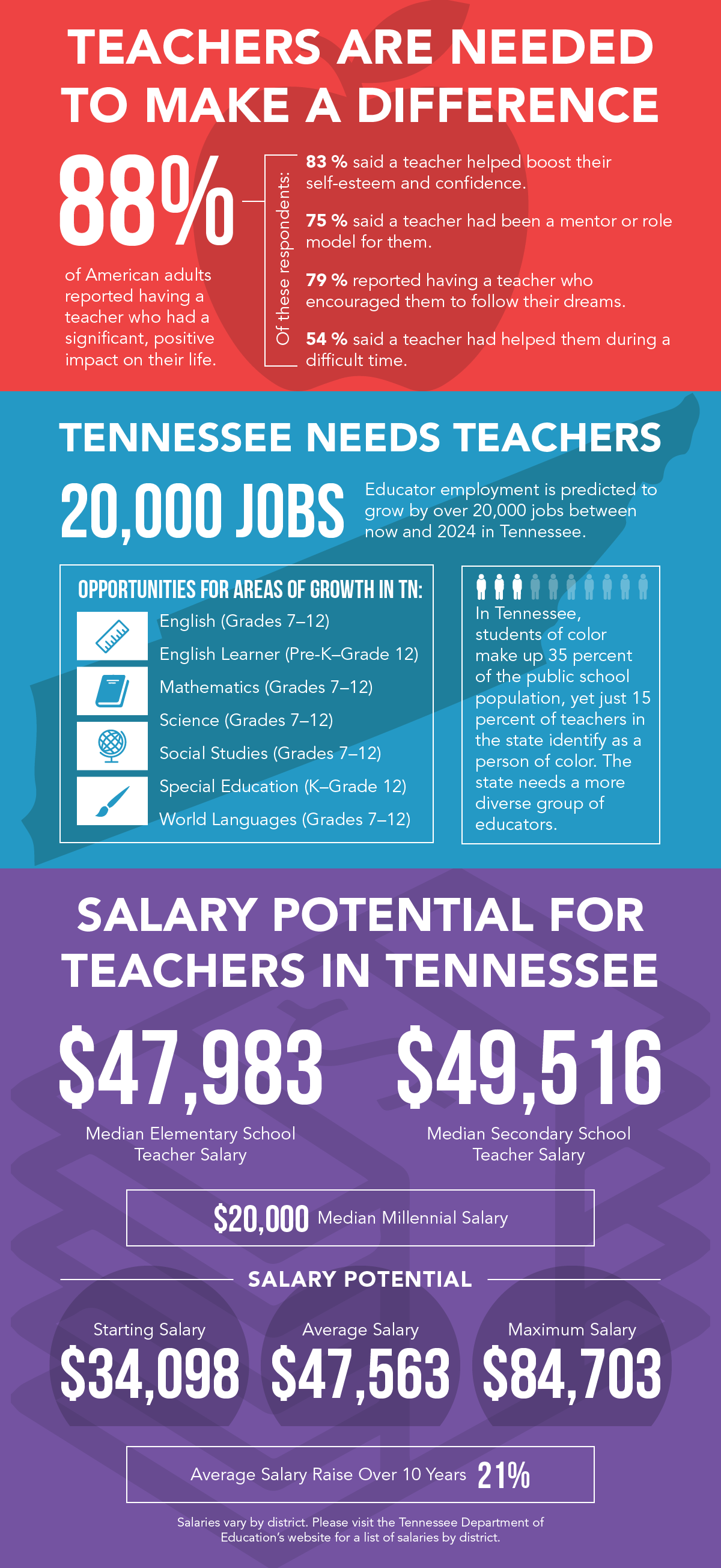Dueling statements were released today from Mayor David Briley and the Metro Nashville Education Association on a move to boost teacher pay in Nashville.
First, from Mayor Briley:
Mayor David Briley announced today that all MNPS teachers and employees will receive another 3 percent cost-of-living adjustment (COLA) on January 1, 2020, in addition to the 3 percent COLA the Mayor made possible by allocating nearly $30 million in new funding for schools for FY2020. This allocation was six times the allocation in the last budget.
For weeks, the mayor has been working to find ways to get teachers more money this year while avoiding a tax increase. Thanks to MDHA’s help and the work done by the Council’s Tax Increment Financing Study and Formulating Committee, Mayor Briley is able to free up $7.5 million that would have been paid out of the MNPS budget to repay TIF loans. These funds are recurring, so the raise is “paid for” moving forward. This move does not require Council action since it will simply result in a reduced expenditure for MNPS.
This will bring all teachers to a 6% raise on January 1, 2020, which equates to a 4.5% increase over the course of the year. This is .5% higher than the COLA increase in the proposed substitute budgets that would have raised property taxes.
“I have been working on the MNPS budget with Dr. Battle and Dr. Gentry, trying to find the best possible way to get recurring dollars to teachers while not penalizing the 40% of MNPS teachers who are “topped out” and while avoiding a property tax increase this year – something that would have hurt in-county teachers more than the proposed raises would have helped,” Mayor Briley said. “With this increase in place, we will continue our in-depth talks about comprehensive pay plan restructuring for teachers so the more than half of all teachers who are topped out of receiving meaningful increases will get them in future years. There’s work to be done, but this is an important first step.”
This plan has the support of MNPS School Board Chair Dr. Sharon Gentry and MNPS Director Dr. Adrienne Battle.
“Mayor Briley’s investment shows a deep commitment to our teachers and staff members, and we thank him for his leadership and support for public education,” Dr. Battle said. “When Mayor Briley saw an opportunity for supplemental revenue, he ensured that it was dedicated to funding a raise for staff members, which is in addition to the raise they are receiving at the start of the year. We are only as successful as our amazing staff, and the Mayor’s actions show how he values them. Our goal is that these resources also ensure that we are able to maintain funding for other new strategic investments. MNPS is thankful to partner with the Mayor and Metro Council who are dedicated to the success of our students and staff.”
The $7.5 million will come to schools in the form of a reduction in the $11.2 million they would otherwise have paid to MDHA for TIF loan repayments this year. In short, it cuts that bill by $7.5 million, freeing up those funds for raises. MNPS will continue to pay what it is required to pay MDHA each year.
“I am grateful to Dr. Adrienne Battle, the MNPS Board, MDHA and the members of the TIF Study and Formulating Committee, whose hard work and support made this additional COLA possible,” Mayor Briley continued. “I plan to keep at it, and I know we have more great things to come for all students and teachers in our schools.”
A response from MNEA:
Today, the Metropolitan Nashville Board of Education received a sudden offer of $7.5 million in additional funding from Mayor Briley in the form of an adjustment to $11.2 million previously slated to be diverted from Metro Schools to fund tax increment finance (TIF) debt. While teachers and schools welcome additional funding for our cash-strapped public schools, the method by which this “plan” was developed smells of political intrigue, vote buying, and extortion. Briley’s letter to the board of education intentionally leaves ambiguous the question of whether the $7.5 decrease in TIF funding will extend beyond 2019-2020.
Unfortunately, the Briley plan comes with a demand that the board not fund teachers’ step raises but use his approach to adjust salaries. If Mayor Briley truly wanted to help schools, he should have supported the Vercher amendment rather than threaten a veto designed to hamstring the Metro Council. His games unnecessarily exposed certain brave, schoolsupporting council members to unnecessary risk of criticism by voters on the right and forced other council members to betray organized labor and our schools.
At the end of the 2017-2018 fiscal year, MNPS was compelled to transfer $3.5 million dollars to MDHA to meet increased TIF obligations to MDHA based on tax collections in excess of budgeted projections. In the 2018-2019 budget TIF transfers were budgeted to increase, but MNPS was not required to pay the complete amount. Today, Mayor Briley admitted TIF loan obligations have been overstated, and there is no need to extract additional tax revenue from our schools in 2019-2020. Nashville’s chronically-underfunded schools deserve deliberate, honest funding streams that do not rely on selling assets or require refinancing schemes that ultimate cost more money to our tax payers. No one should mistake Briley’s newest shell game as a magnanimous gesture to support teachers or schools. See it as vote grab!

For more on education politics and policy in Tennessee, follow @TNEdReport
Your investment makes reporting education news possible.



